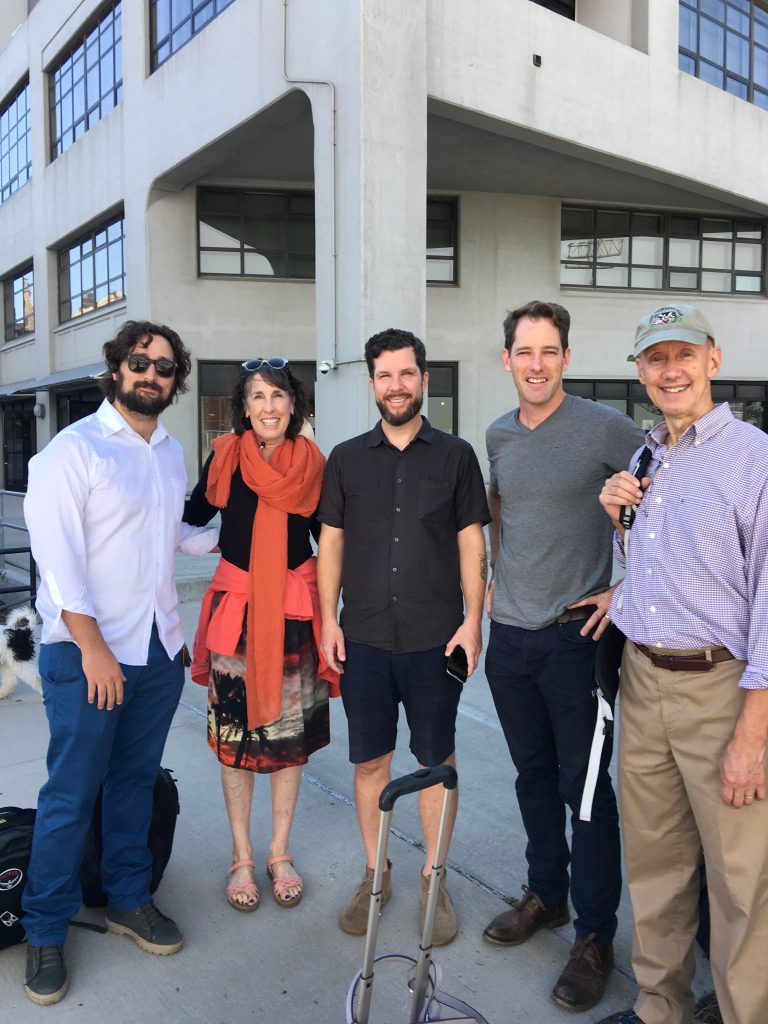
The Public Space Research Group (PSRG) was founded in 1995 by Distinguished Professor Setha Low and doctoral students at The Graduate Center of The City University of New York (CUNY). The objective was to create a center for ethnographic research, theory, and policy that focuses on the relationship of public space to people and communities within the context of historical, social, political, and economic forces. The PSRG offers an integrated framework for examining the processes that transform spaces into places, the conflicts that emerge over access and control of space, and the values and meanings people attach to places. We address local cultural and spatial resource problems and their evaluation, remediation, and revitalization through social policy, urban planning, management strategies, and environmentally-sensitive design. Since its founding, PSRG has rapidly grown in size and scope as faculty, graduate students and community associates have researched city parks, urban national parks, plazas, beaches, market areas, tourist areas, gated communities, co-operative housing, and historic preservation sites. We offer a critical perspective on practices that consider the human cost of inequalities and social exclusion in public space.
Key research topics range from protecting and enhancing large public spaces such as urban parks and heritage sites to examining and articulating the exclusionary practices and dynamics of fear and security in urban neighborhoods, schools, housing, and gated communities.
Our Mission
- Innovate ethnographic research methods for the study of public spaces.
- Provide a critical theoretical and methodological perspective on public space use and design.
- Engage in research and design practices that promote more socially just public space.
Our Objectives and Activities
We have two main objectives:
- Research Support. This objective includes working meetings for members, technical assistance, and resource development. Research project categories include, graduate student research, affiliated and central line faculty research, and externally funded or contracted PSRG projects.
- Public Space Networking. This objective includes network building and dissemination, wherein we coordinate a network of academics, policy makers, and practitioners actively involved in public space research, activism, and advocacy. There are three main areas of activity associated with this objective:
2a. Facilitation of collaborative meetings among public space researchers, advocates, and practitioners, including:
-
-
-
-
- Monthly meetings for members
- Public programs for the presentation of research, ongoing projects and methods
- Guest speaker webinars
- Panels on current topics
- Guided conversations on emerging issues, methods and ethics
-
-
-
2b. Production of materials/toolkits/workshops/trainings available to researchers and practitioners, including:
-
-
-
-
- Publicly available toolkits and publications
- Fee-for-service methods training
- Links to partners and affiliate organizations’ guidelines and materials
- Links to recorded webinars
- Conferences participation
- Op-ed and white papers on thepsrg.org and other media sources
-
-
-
2c. Operation of an email listserv to which members of the public may subscribe through thepsrg.org and be notified of events, publications, new web content, etc.
We undertake a variety of activities as a means of achieving our objectives:
- Basic qualitative research on public space history, politics, use and meaning
- Applied research on the assessment and evaluation of public space including user needs assessments and cultural resource studies
- Consultation with community groups and agencies concerned with the development of public space
- Training in ethnographic and other research techniques
- Publication of technical reports and scholarly articles
- Presentations at local and national conferences on urban issues, culture and public space
- Technical assistance and networking through webinars and public programs


